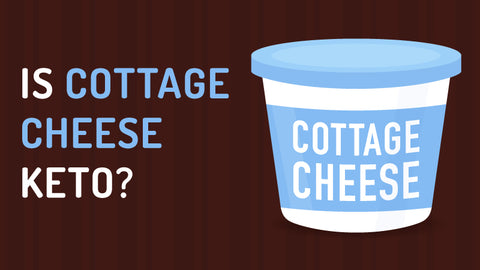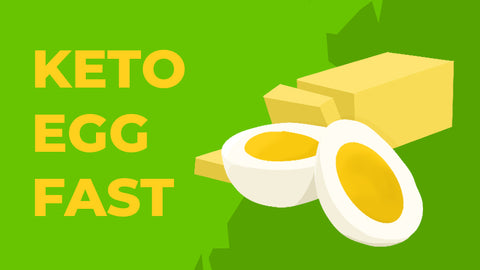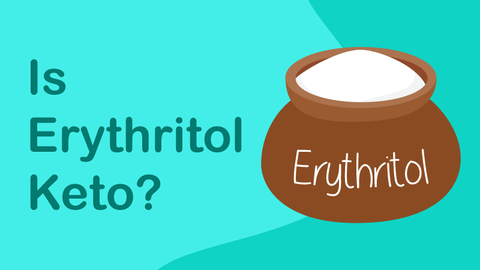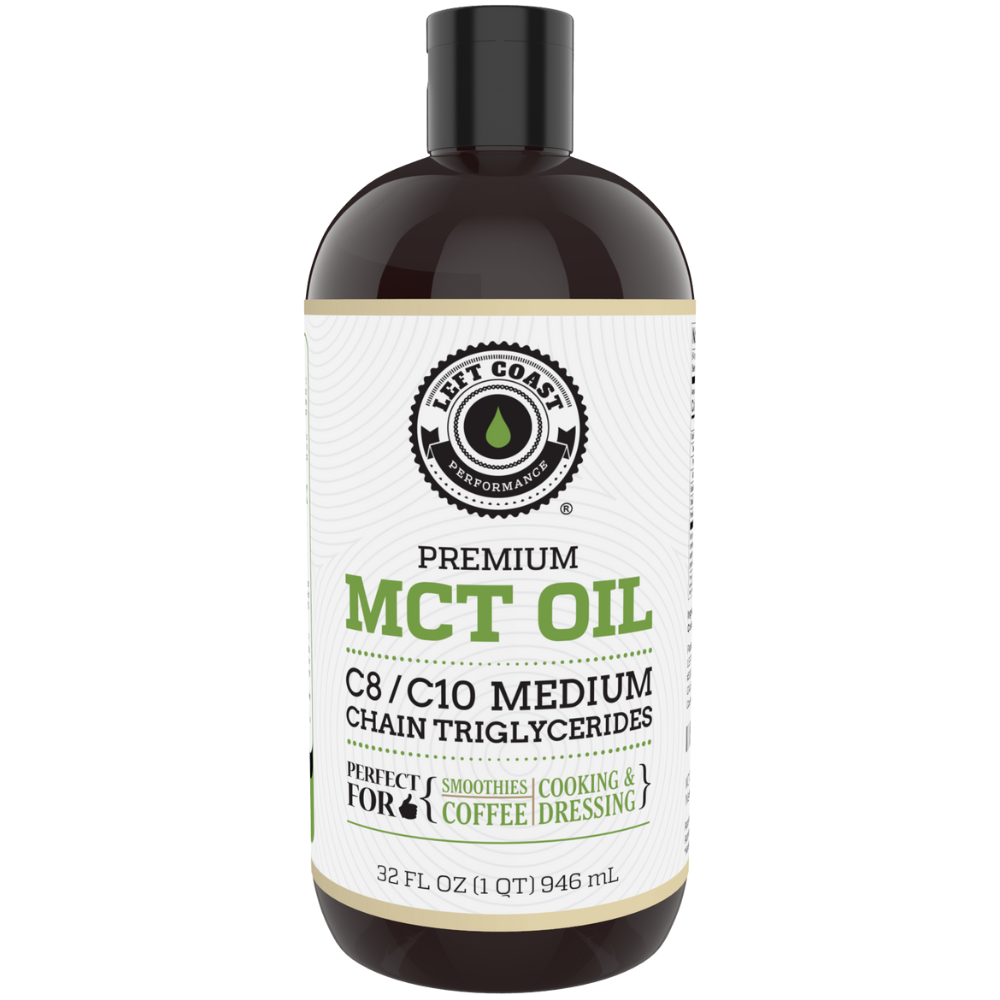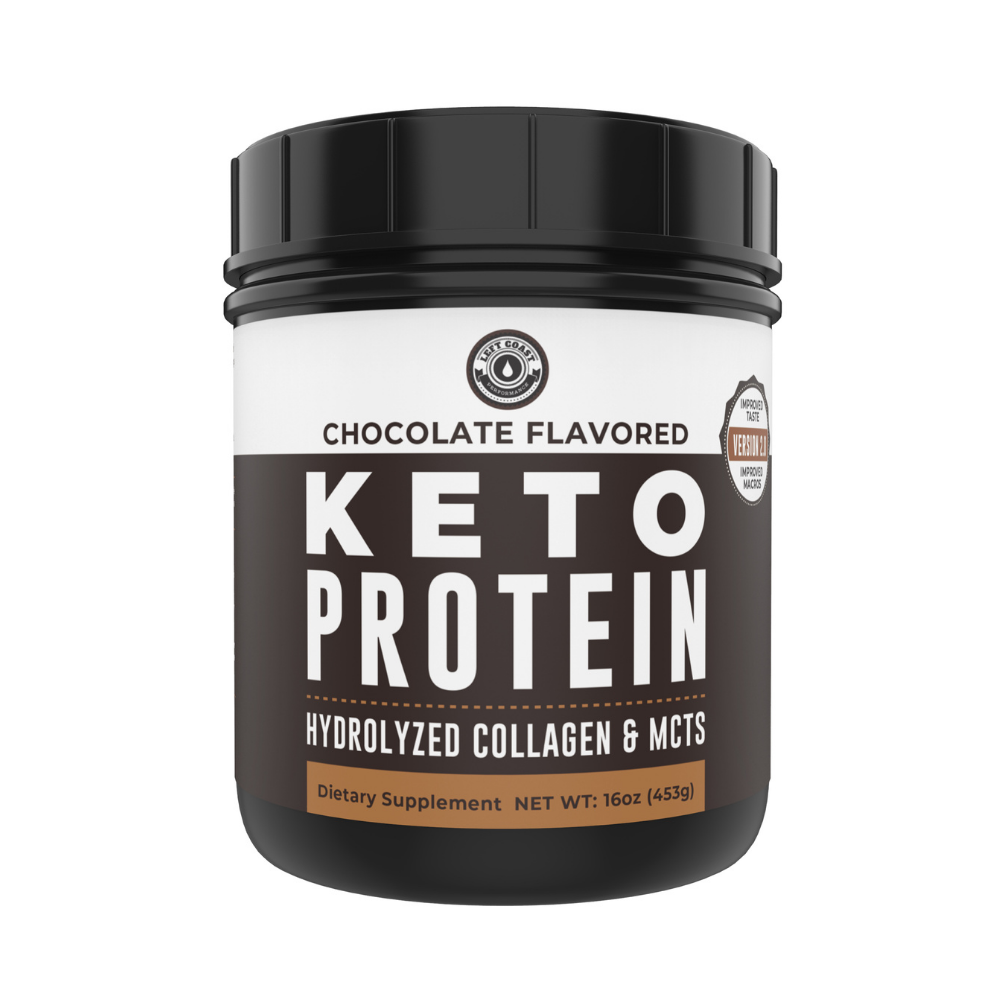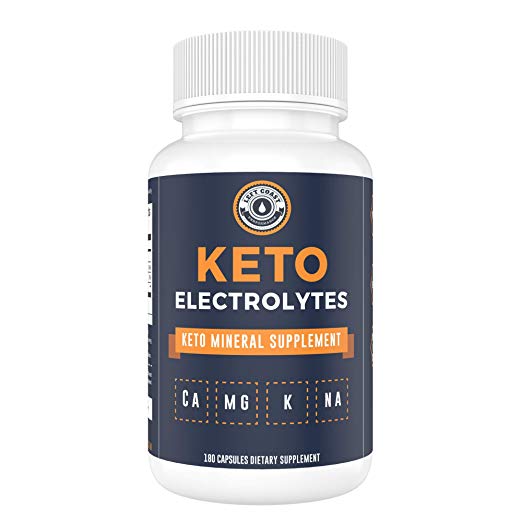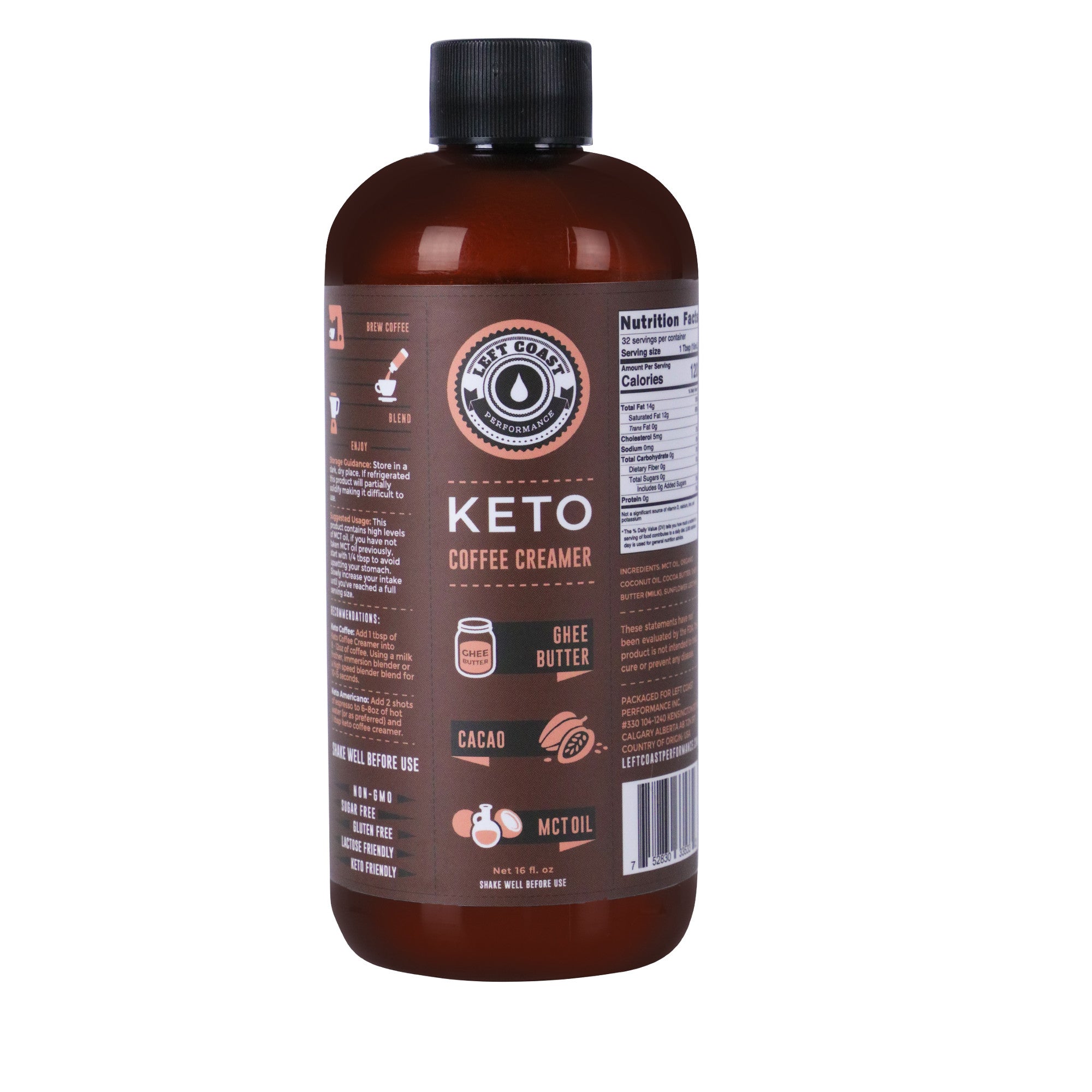Keto Coffee: What It Is and How to Make It

on September 26, 2019
What Is Keto Coffee?
Coffee is one of the world’s most popular beverages, and though it often gets a bad rap, it can actually be an excellent nutritional tool—as long as you know how to take advantage of its greatest properties.
One way to do that is to turn your daily cup of coffee into keto coffee.
Keto coffee, which is often referred to as Bulletproof Coffee® or butter coffee ditches the sugar and artificial creamers in favor of low-carb and high-fat “creamers,”.
The star of the show is MCT oil or MCT powder. Medium-chain triglycerides are unique because they skip the normal digestion process that usually begins in the intestines. Instead, MCTs get absorbed in the liver as many other small nutrients do. This provides them with their unique ability to provide rapid energy and promote ketosis.
If it was just high quality fat we were after, we would probably stop at MCT Oil. However, if you want a delicious creamy latte you need to add some form of other fat. The second ingredient (grass-fed butter, ghee, coconut oil, coconut milk or heavy cream) adds creaminess, helps to cut the bitterness of coffee and it makes for a more satiating morning brew.
Collagen peptides is another common ingredient to add to your morning brew. Collagen is the most abundant protein in our body and is responsible for the skins elasticity, joint health as well as strong nails and hair.
A high quality hydrolyzed collagen will have no scent or taste, which makes it ideal for adding to your ketogenic coffee
Finally if you're in the market for a little bit more flavor Cacao powder works well as does a pinch of salt.
If you like you need a touch of sweetness you could add Swerve or Lakanto which are carb free artificial sweeteners. As someone who has spent hundreds of hours formulating with low carb sweeteners I would stay away from straight Stevia or Erythritol. Blends of Stevia, Erythritol (or some other sugar alcohol) or Monk Fruit are much more natural tasting.
MCTs
- MCT oil
- MCT powder
Other Fats
- Grass-fed unsalted butter
- Ghee
- Coconut oil
- Coconut milk
- Heavy cream
- Avocado Oil
Protein
- Collagen peptides
Flavor Enhancers
- Cacao Butter
- Cocoa Powder
- Himalayan Sea Salt
- Vanilla
- Nut Milk (Almond Milk, Cashew Milk etc.)
- Cinnamon
Keto Artifical Sweeteners
- Swerve or another sugar-free sweetener
One thing to keep in mind is some of these ingredients will have a small amount of net carbs. Almond milk for example, typically has at least 1g per 8oz, as does coconut milk
A daily cup of keto coffee can help up your fat intake, keep you in ketosis, and boost your energy and mental clarity. It’s easy to make and a great addition to your ketogenic diet, especially if you’re practicing intermittent fasting.
How to Make Keto Coffee - The Ultimate Fat Bomb Coffee Recipe
- Start by brewing one cup (about 8-12 ounces) of black coffee.
- Add 1 tbsp of MCT Oil
- Add 2-4 tablespoons of your preferred fat
- [Optional] add a tbsp of collagen peptides**
- [Optional] add a flavor enhancer
- Mix it all in a blender* for roughly 30 seconds until the blend turns frothy or latte-like.
*Alternatively use an immersion blender or a milk frother to blend in
**You can add other protein powders but we recommend collagen because it doesn't add a lot of calories or protein. It's also dairy free, taste free and smell free plus it dissolves really well.
Here are two healthy coffee creamer recipes we recommend for the ultimate fat bomb keto coffee blend.
If you want a little more flavor, you can also experiment with adding touches of vanilla, cacao, or cinnamon to your creamer mix.
Keto Coffee Recipe #1: MCT Powder and Ghee
This coffee creamer is our premium pick because it contains two powerful superfoods in one: MCT oil and ghee.
This makes it a bit more expensive, but with the added cost comes additional benefits, notably a potent dose of MCTs, omega-3s, and fat-soluble vitamins like A, E, and D.
- 2 tsp of ghee
- 2 tablespoon of MCT Powder
- One cup of freshly brewed black coffee,
Blend and enjoy
Keto Coffee Recipe #2: MCT Oil, Coconut Oil and Butter
It contains some MCTs and essential fat-soluble vitamins like A, E, and D, so it can be a great alternative for a comforting cup of keto coffee.
- 1 tbsp of MCT oil
- 1 tablespoons of coconut oil
- 1-2 tablespoons of butter
- 1 cup of regular coffee
Blend and enjoy.
Bulletproof Coffee® Recipe #3: MCT Oil and Grass Fed Unsalted Butter
If you're a little bit more of a purist, you may elect to stick to the original bulletproof coffee® recipe.
- 8oz black coffee
- 1 tbsp MCT oil
- 2 tbsp of grass fed butter
Blend and enjoy.
Left Coast Performance Keto Coffee Creamer Recipe #4:
Our Keto Coffee Creamer contains MCT Oil, Ghee, Coconut Oil, Cacao Butter and Sunflower Lecithin. It's a truly delicious blend of fats that make a perfect cup of keto coffee.
- 1-2 tbsp Left Coast Performance's Keto Coffee Creamer
- 8-12oz black coffee
Blend and enjoy!
Keto Coffee Benefits
Coffee has had a similar fate to eggs—one minute it’s deemed bad for your health, the next it’s touted as a “superfood”.
Fortunately, an increasing amount of evidence agrees with the latter, as many researchers have found that coffee comes with a wealth of health benefits, including improved focus and energy in the short-term and reduced risk of Type 2 diabetes, heart disease, and cancer in the long-term.
Add to all that a serving or two of healthy fats, and these benefits can be greatly enhanced. Here are a few good reasons to add keto coffee to your daily diet
1. Promotes Weight Loss & Fat Burning
Coffee itself has some powerful fat-burning potential. Caffeine has long been known to boost metabolism, sometimes up to 11%, and also has the power to increase fat burning by as much as 29%.
You can increase the possibility of dropping weight and shedding fat when adding an ingredient like MCT oil or coconut oil (which contains MCTs, or medium chain triglycerides). MCTs are highly efficient energy sources, which have been shown to induce ketosis, suppress the appetite, and aid in weight loss.
2. Boosts Energy & Mental Focus
Unlike a plain black coffee or one loaded with low fat milk and sugar, consuming keto coffee will help sustain energy levels and keep you from experiencing a midday crash. This is due to the added fats, which help absorb the caffeine and prolong its effects. Again, MCTs will help this process along, promoting ketone production and giving you an instant burst of energy. These ketones also provide energy for your brain cells, which may help you think a little clearer and focus better.
Of course, the caffeine in your coffee can also keep you more alert and mentally prepared.
3. Curbs Appetite & Cravings
Coffee has long been thought of as an appetite suppressant, but the evidence on this is mixed. However, a keto coffee may just do the trick. Adding fats can help slow down your digestion and increase feelings of fullness. This is why it can work as a satiating breakfast alternative, especially for those practicing intermittent fasting.
4. Keto Coffee with MCT Oil Benefits
Adding MCT oil to your coffee is one of the purest, most efficient ways to help push you into ketosis and stay there.
MCT oil has fewer calories than other fats (about 100 calories per tablespoon), curbs hunger cravings, and increases calorie burning, all which translates to weight loss. Several studies can back this up, including this one, which found that men who ate breakfast containing MCT oil lost more body fat than those who ate fats containing long-chain triglycerides.
Along with promoting weight loss, MCT oil can increase your energy level without any potential crash. This is because MCTs help stabilize blood sugar as they encourage the use of ketones for energy instead of glucose which makes it ideal for the keto diet. Those ketones can also enhance your cognitive health.
5. Keto Coffee with Grass Fed Butter Benefits
Grass-fed butter contains high-powered nutrients like vitamins A, E, and D, as well as anti-inflammatory, brain-enhancing omega-3 fatty acids and conjugated linoleic acid (CLA), which has been shown to aid in weight loss and protect against chronic diseases like type 2 diabetes and certain cancers. In fact, there can be as much as 500% more CLA in grass-fed dairy compared to non grass-fed dairy products.
The grass-fed variety also contains the rare vitamin K2, which is found in few foods, but has been shown to improve heart health and bone health.
Be sure to look for butter products like KerryGold or local dairy brands that promote the use of grass-fed versus grain-fed cows.
6. Keto Coffee with Ghee Benefits
Since the milk solids are removed, ghee serves as an excellent substitute for anyone who is lactose or casein intolerant. It also doesn’t need to be refrigerated.
As it’s derived from butter, ghee offers similar nutrients, including vitamins A, E, and K, though it does have slightly more fat (13 grams versus butter’s 11 grams in 1 tablespoon).
It also provides a bit more CLA, as well as butyric acid, a short-chain fatty acid that is greatly beneficial to the gut. The use of ghee has also been shown to reduce the risk of heart disease and potentially certain cancers.
7. Keto Coffee With Coconut Oil Benefits
Coconut oil may offer fewer MCTs than the pure MCT oil, but it doesn’t lack in a well-rounded list of health benefits.
As mentioned above, lauric acid can still stimulate ketone production and, in doing so, may improve brain health as well. Lauric acid is also a potent antimicrobial, meaning it can kill harmful bacteria, viruses, and funghi.
The MCTs in coconut oil combined with the caffeine in coffee will also boost your metabolism and help you burn more calories. Even more, several studies have shown that coconut oil can be effective in reducing belly fat in both men and women.
8. Keto Coffee with Collagen Benefits
Rich in certain amino acids like glycine, proline, glutamine, and arginine, collagen has a number of benefits, including its ability to protect joints, improve your skin, reduce inflammation, and support gut health.
Most notably, several studies have shown that collagen can help increase skin elasticity and hydration and even reduce signs of skin aging.
Its amino acids, like glycine and glutamine, can also aid digestion and offer anti-inflammatory and antioxidant effects.
Adding protein-rich collagen to your morning coffee, especially alongside fats, can also help you stay satiated until lunchtime.
8. Keto Coffee with Cacao Butter Benefits
Cacao butter offers a big dose of healthy fats, but it also provides antioxidants and phytosterols, which are plant compounds that can decrease LDL (bad) cholesterol and may even help in cancer prevention and treatment.
Consuming cacao is also linked to lower risks of cardiovascular disease and diabetes, and has been shown to reduce inflammation, increase satiety, and boost mood and cognitive function.
Fat Coffee - The Final Word
Keto coffee is an easy and satisfying way to kick off your morning, whether you’re practicing intermittent fasting or not.
Coffee alone can help boost your brain and metabolism, but add some healthy fats—like butter, ghee, coconut oil, and especially MCT oil—and maybe a few more superfoods like collagen and cacao, and those benefits are drastically enhanced.
Now this is the ultimate breakfast of champions.


